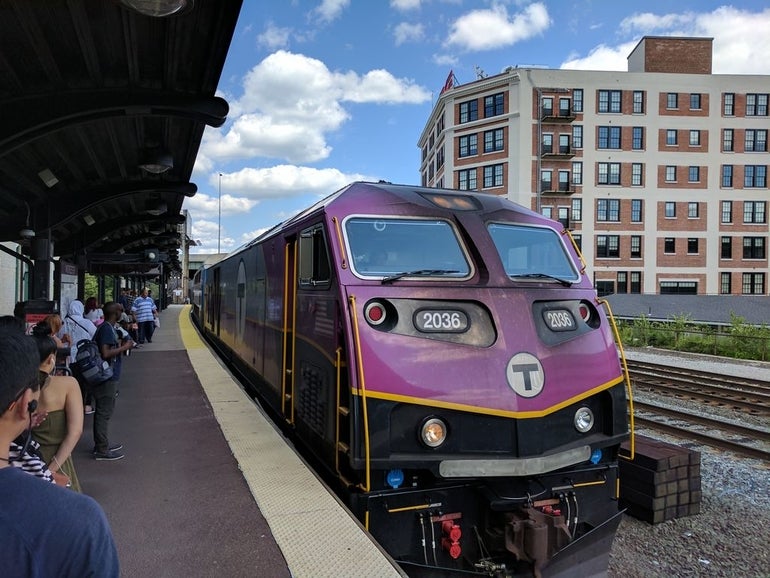The MBTA has requested an extension to 2020 for the federally-mandated implementation of anti-collision technology for the commuter rail network after demonstrating sufficient progress on certain lines, a milestone the T’s general manager said was in doubt when he took over.
The extension would give the T two more years to install, test and make operational a positive train control (PTC) system on all of its commuter rail lines. PTC is a system that connects trains to signals, keeping them on the right path and within the right speed, while allowing the engineer the ability to operate within those parameters. The PTC system can reduce a train’s speed or stop it entirely to avoid a collision or derailment.
The MBTA submitted its extension request to the Federal Railroad Administration (FRA) on Sept. 21 after having installed some of its PTC network, including 194 wayside interface units, 181 wayside radios, 181 antennas, 3,097 transponders and 223 miles of fiber optic cable, the T said. The T has also installed onboard equipment in 95 locomotives and 84 control cars, and has begun field qualification testing on the Stoughton Line as a pilot program.
“As the highest priority capital project for the MBTA, Positive Train Control represents one of the most significant safety upgrades for our rail system in recent memory,” MBTA General Manager Luis Ramírez said.
The FRA requires rail systems to have PTC in place by Dec. 31, 2018, but if the MBTA’s extension is granted, the T will have until Dec. 31, 2020 to launch PTC on the commuter rail. Karen Antion, a consultant hired by the T to oversee the PTC project, said the T hopes to launch its PTC system fully by Aug. 31, 2020, but will begin bringing lines on incrementally before that date.
When Congress first mandated PTC, under the Rail Safety Improvement Act of 2008, rail systems were initially given a deadline of Dec. 31, 2015 to implement the safety feature, according to the FRA. In October 2015, Congress extended the deadline to the end of 2018 and set the end of 2020 as the absolute deadline for systems that have been given an FRA extension.
According to the FRA, 66 percent of the freight route lines and 24 percent of passenger train route lines across the country have already been put into PTC operation.
Ramirez, who took over as general manager of the T in September 2017, said that when he arrived the PTC project was in such bad shape that it looked unlikely the T would complete the work necessary to apply this month for an extension.
“This was the biggest financial and operational risk that I saw in the organizations when I got here, this project not doing well,” Ramirez, a former business consultant, said Monday. “It would have had the implication, potentially, of shutting down the commuter rail lines until we had something in place that the federal government … would allow us to continue to operate.”
Though T officials were heartened by the work that got them to the point of asking for more time, they also acknowledged that the real work is just beginning.
“I stood here earlier this year and said to you that the work that we had to do in 2018 was three or four times the amount of work that was accomplished in 2017. I’ll tell you that the work that needs to be done over the next 18 months to fully commission this system will make the work that we’ve accomplished to date pale in comparison,” Antion told the T’s Fiscal and Management Control Board on Monday. “It is a tremendous job.”

